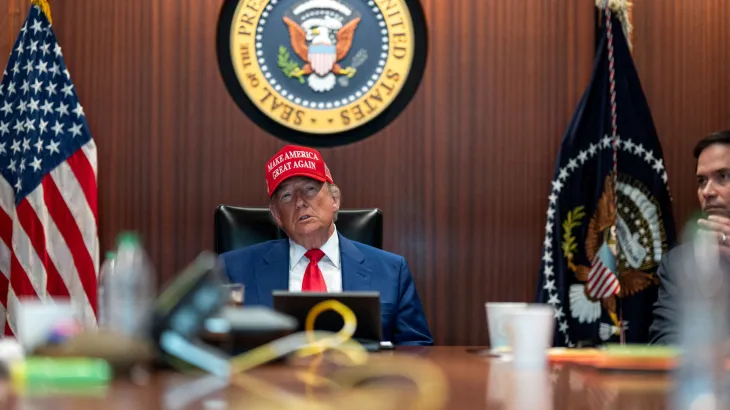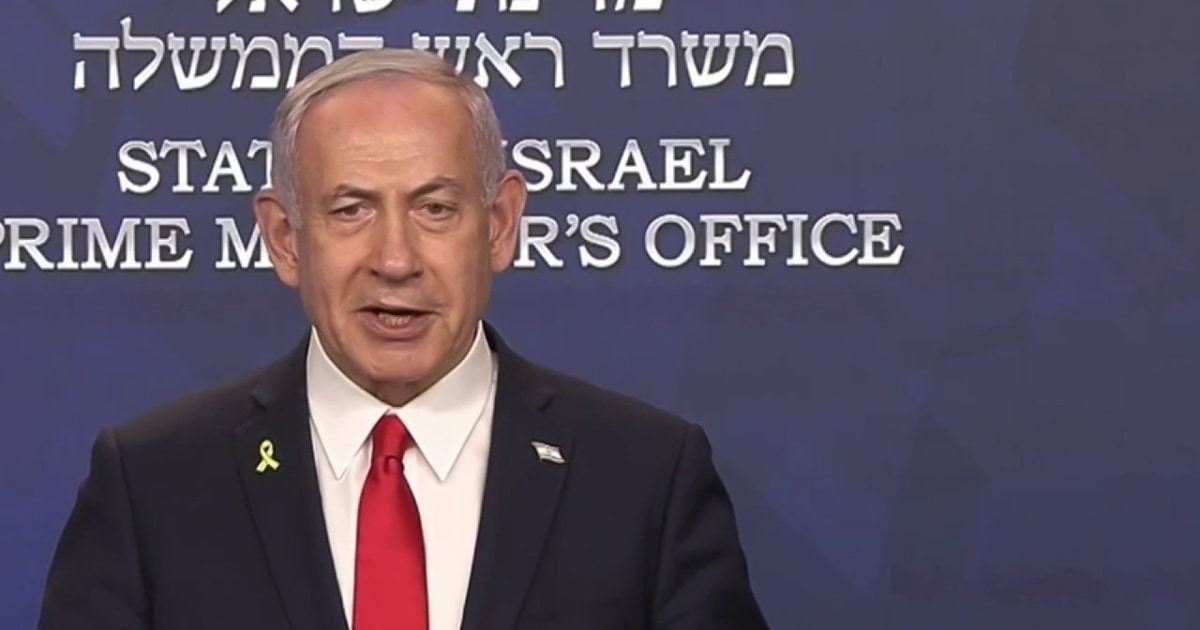
Wafric News – June 22, 2025
Tehran/Washington – In a dramatic escalation of hostilities in the Middle East, the United States has joined Israel in launching coordinated airstrikes on Iranian nuclear facilities, including key sites at Fordow, Natanz, and Isfahan.
The strikes, confirmed by U.S. President Donald Trump in a post on Truth Social Saturday, were described as “very successful,” with Trump claiming the fortified Fordow site was “gone.” Speaking later from the Oval Office in a brief televised address, Trump declared that Iran’s future now rests on a “choice between peace or tragedy.”
“Iran’s key nuclear enrichment facilities have been completely and totally obliterated,” he said.
The move marks a significant expansion of Israel’s military campaign against Iran, which began on June 13. Israel has stated its objective is to prevent Iran from acquiring nuclear weapons—despite never officially acknowledging its own arsenal.
While the Pentagon has yet to release official footage or casualty figures, U.S. media reported that the strikes were carried out using B-2 stealth bombers and submarine-launched Tomahawk cruise missiles.
Iran Decries Violation of Sovereignty, Denies Nuclear Ambitions
Iranian Foreign Minister Abbas Araghchi condemned the attacks, calling them a “flagrant breach” of international law.
“The United States, a permanent member of the UN Security Council, has violated the UN Charter and the Nuclear Non-Proliferation Treaty by targeting peaceful nuclear installations,” he said in a statement.
Iran maintains that its nuclear programme is strictly for civilian energy and medical purposes. Officials insist there are no plans to weaponize uranium enrichment.
The country’s Atomic Energy Organisation also released a statement assuring the public that “no radioactive contamination” had been recorded at or near the targeted sites.
“Despite the evil conspiracies of its enemies, Iran’s nuclear industry will continue through the dedication of its scientists and experts,” the agency stated.
The UN’s International Atomic Energy Agency (IAEA) later confirmed that radiation levels at the affected facilities remained stable.
“No increase in off-site radiation has been detected,” the IAEA said in a post on social media platform X.
Tensions Mount Amid Global Alarm
As Israel and Iran continue exchanging fire, the human toll is mounting. Iranian state media reports over 430 deaths and 3,500 injuries within its borders since Israeli strikes began. In Israel, 24 civilians have been killed by retaliatory Iranian missile fire, with over 1,200 injured.
UN Secretary-General António Guterres expressed deep concern, warning that the conflict could spiral beyond control.
“This dangerous escalation poses catastrophic consequences for civilians, the region, and global stability,” Guterres said.
Analysts Warn of Long-Term Fallout
Trita Parsi, vice president of the Quincy Institute for Responsible Statecraft, criticized the U.S. and Israeli actions as setting a perilous precedent.
“Two nuclear-armed states just attacked a non-nuclear state unprovoked. This could push other nations to seek nuclear deterrents,” Parsi told Al Jazeera.
He also speculated that Iran may have preemptively moved valuable nuclear assets out of the targeted zones, reducing the immediate impact of the strikes.
“Iran’s enriched uranium stockpile remains the most critical component of its nuclear capability,” he noted.
Parsi warned that the attacks could backfire, potentially accelerating Iran’s path to developing a nuclear weapon within the next decade.
“Rather than deterring Tehran, this might have sealed the argument for why Iran should go nuclear,” he added.
Netanyahu Reacts
Israeli Prime Minister Benjamin Netanyahu praised Trump’s move as a “historic” step.
“Congratulations, President Trump. Your bold decision to strike Iran’s nuclear facilities has changed the course of history,” he said.
Meanwhile, CBS News reported that U.S. officials reached out to Tehran after the attacks, signaling no intent to pursue regime change or further escalation at this time.
Still, observers say the strikes may deepen mistrust in international security frameworks, particularly the NPT.
With both Israel and the United States having launched military strikes on Iranian territory, calls are growing for de-escalation and urgent diplomatic engagement to prevent a broader regional war.
WafricNews will continue monitoring developments from Tehran, Washington, and Tel Aviv as diplomatic, humanitarian, and strategic responses unfold.
By WafricNews Desk.
By WafricNews Desk.



Comment
To post a comment, you have to login first
LoginNo Comments Yet...